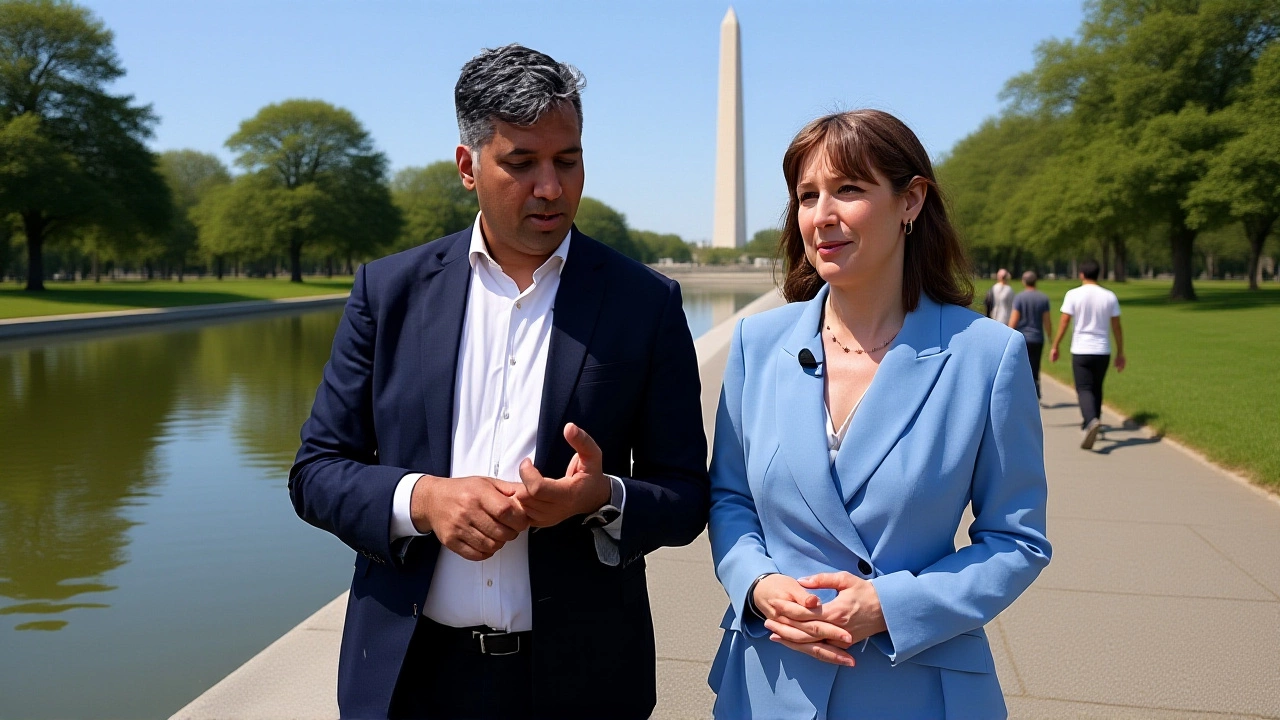Chancellor Rachel Reeves Announces UK‑EU Youth Mobility Scheme
 Oct, 18 2025
Oct, 18 2025
When Rachel Reeves, Chancellor of the Exchequer took the podium at the Labour Party conferenceLiverpool on Monday, she promised a fresh "reset" for young Britons: a reciprocal youth mobility scheme with the European Union. The proposal, she said, would let under‑30s work, study and volunteer across the continent, helping plug a post‑Brexit gap that has left a generation feeling shut out.
Why the scheme matters now
Brexit reshaped the labour market in ways many still feel. When the UK left the bloc in January 2020, the ability for a 22‑year‑old from Manchester to take a summer job in Barcelona vanished almost overnight. A 2024 survey from the Institute for Fiscal Studies found that 38 % of British graduates felt "limited" in their career choices because of the new border regime. Reeves’ pledge aims to reverse that trend, framing mobility as a growth engine rather than a political concession.
"We should not cut young people off from opportunities that my generation took for granted," she told the crowd, adding that the scheme would be "accessible to all, not just the well‑off". Her timing is deliberate: the next national budget is due in early November, and the Office for Budget Responsibility (Office for Budget Responsibility) is slated to update its post‑Brexit growth forecasts.
Details of the proposed UK‑EU youth mobility agreement
The blueprint calls for temporary visas lasting up to 24 months for citizens under 30. Under the reciprocal model, a British student could spend a year in Paris while a German trainee could take a placement in Edinburgh. The scheme would sit alongside existing arrangements the UK has with non‑EU partners like Japan and New Zealand.
- Eligibility: Citizens aged 18‑30 with a valid passport.
- Visa length: 12‑24 months, renewable once.
- Financial barrier: Application fees capped at £150, with a proposed waiver for low‑income applicants.
- Sector focus: Hospitality, tech, environmental NGOs, and language‑exchange programmes.
Reeves stressed that the plan would be evaluated by the OBR to quantify its impact on the Treasury. "When we left the EU, the OBR said our economy would be 4 % smaller," she recalled. "A well‑designed mobility scheme can help us claw back a slice of that loss."
Industry and campaign reactions
The travel industry cheered loudly. Association of British Travel Agents public affairs director Luke Petherbridge, public affairs director, said the announcement validated five years of lobbying. "ABTA welcomes the Chancellor's strong support," he said, citing internal research that 76 % of the British public backs a UK‑EU youth scheme, including 61 % of those who voted to leave in 2016.
On the advocacy side, Best for Britain chief executive Naomi Smith, Chief Executive praised the principle but warned that "up‑front application costs must be scrapped" before the plan can truly be inclusive.
Even some traditionally sceptical voices entered the conversation. A poll by The Independent showed backing from Reform UK supporters, a demographic that previously championed stricter immigration controls. "Youth mobility is about skill exchange, not mass migration," a Reform UK spokesperson explained.

Economic forecasts and budget implications
Independent analysis from the Centre for European Reform estimates the scheme could lift UK GDP by 0.4‑0.45 % over a decade – roughly £12‑£14 billion in additional output. The think tank’s model assumes a 10 % uptake in the first five years, driven by university partnerships and apprenticeship programmes.
Financial journalists note that the figure could help offset the projected £15 billion shortfall the Treasury expects to face in the upcoming budget. "If the scheme delivers even half of the projected boost, it would shave a noticeable amount off any needed tax rise," wrote a senior editor at the Financial Times on Tuesday.
Roadmap and challenges ahead
While the political will appears solid, the logistics are tangled. Negotiations with EU institutions are expected to run through 2026, with a realistic launch date in 2027 at the earliest. Key hurdles include aligning visa processing systems, agreeing on cost‑sharing for administrative overhead, and ensuring mutual recognition of qualifications.
Reeves acknowledged the timeline, stating, "We are starting the conversation now so that by the time the next budget is set, we have a clear picture of the fiscal impact." The Chancellor also hinted that a pilot programme could be rolled out in partnership with the Netherlands and Ireland as early as early 2026, allowing the government to iron out technical glitches.
Critics argue that the scheme could become a political football, especially if the next general election sees a swing toward parties favouring tighter borders. Nonetheless, the breadth of cross‑party support – from Labour to some Conservatives and even Reform UK – suggests the idea may survive the usual electoral turbulence.
Frequently Asked Questions
How will the youth mobility scheme affect UK students?
British students aged 18‑30 could apply for a 12‑24 month visa to study or work in any EU member state. The scheme promises lower fees and a streamlined application, meaning a University of Bristol graduate could spend a year in Munich gaining language skills without the bureaucratic nightmare that followed Brexit.
What costs will participants face?
The government has earmarked a £150 maximum fee for the visa application, with a proposed waiver for applicants whose household income is below £25,000. Industry groups hope the waiver will be expanded once the scheme launches.
When is the scheme expected to become operational?
Negotiations are slated to finish by the end of 2026, with a tentative rollout in 2027. A pilot with the Netherlands and Ireland may begin in early 2026 to test the system.
How does the scheme impact the UK economy?
The Centre for European Reform projects a 0.4‑0.45 % GDP lift over ten years – roughly £12‑£14 billion. This boost could help narrow the projected £15 billion budget gap for the next fiscal year.
Will the scheme be open to all EU nationals?
Yes, the agreement is reciprocal. Young people from EU states will be able to apply for the same 12‑24 month visas to work, study or volunteer in the UK, subject to the same fee caps and income‑based waivers.